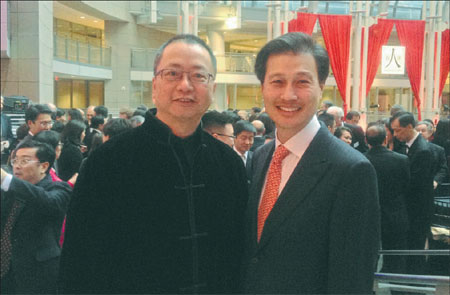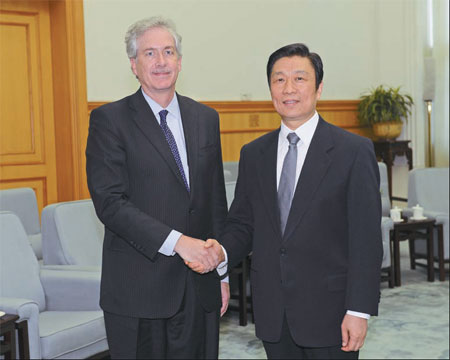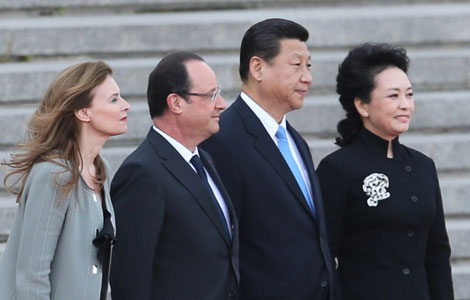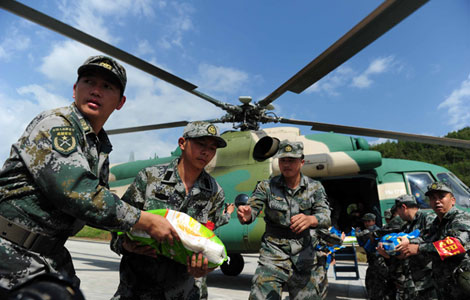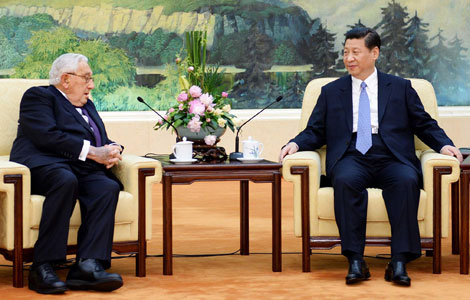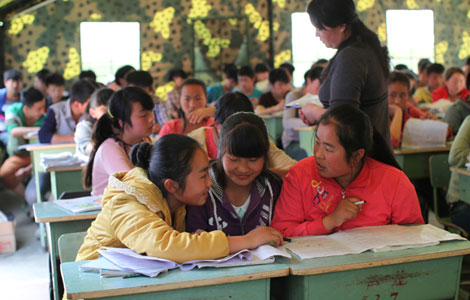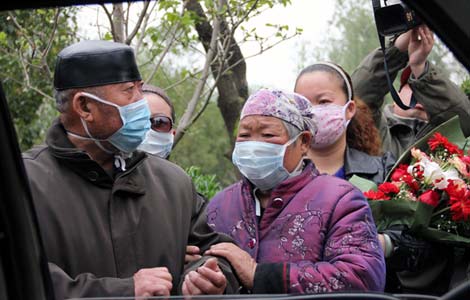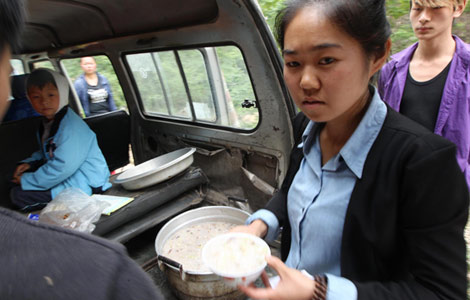New envoy calls for more trust
Updated: 2013-04-26 15:41
By Li Xiaokun in Beijing and Chen Weihua in Washington (China Daily)
|
||||||||
|
Dominic Ng (right), chairman of the Committee of 100, and Clarence Kwan, chief financial officer and chairman-elect, stop for a snapshot during the organization's annual conference on Thursday. The Committee is an elite group of Chinese-American community and business leaders that promotes US-China relations and interaction between the countries' peoples. Emily Wang / For China Daily |
|
Chinese Vice-President Li Yuanchao meets with US Deputy Secretary of State William Burns on Thursday in Beijing. Burns on Thursday also met State Councilor Yang Jiechi, who is in charge of foreign affairs. Liu Zhen / for China Daily |
Strategic trust between China and the United States is still not sufficient, despite a genuine effort on both sides to gradually build up such confidence, Cui Tiankai, the new Chinese ambassador to the US, told the annual meeting of the Committee of 100 on Thursday.
"It's not up to the level that is required by the important relationship," he said.
"And we are making progress," he said, citing the 12 meetings between the two presidents in the past two years and President Xi Jinping's "very good telephone conversation" with Obama on Xi's first day in office to reaffirm the commitment to develop the relationship.
Cui made the remarks at the Committee of 100's 22nd Annual Conference in Washington. The committee is an elite group of Chinese-American community and business leaders that promotes US-China relations and interaction between the countries' peoples.
Chairman of the Committee of 100 Dominic Ng said: "With the completion of the 2012 political leadership transitions in the United States and China, Washington and Beijing face global challenges that call for trust-building. This year's Annual Common Ground Conference brings together distinguished thought leaders from both countries to assess critical issues shaping the future of US-China relations."
Increasing commitment and coordination are being shown by the two sides on many issues, including some of the most difficult and sensitive ones, Cui said.
"We have a very broad agenda in international and regional issues, including the situation in the Korean Peninsula," he said.
"So I am optimistic about the prospect of enhancing mutual trust between China and the United States."
He said people who say the glass is half empty or half full are both right. "What is important is that the water level is rising," Cui said.
He believed the real test for strategic trust is whether both sides are able to fully respect each other's vital interests and major concerns.
"In this regard, we certainly have more to do," he said.
At the same time, how to ease tension on Korean Peninsula has become an essential topic in high-level meetings between China and the United States as both the Democratic People's Republic of Korea and the Republic of Korea continue to exchange threatening rhetoric.
Visiting US Deputy Secretary of State William Burns said on Thursday during his meeting with Vice-President Li Yuanchao that Washington would like to strengthen communication with Beijing on key issues.
Experts said they believed the Korean Peninsula was high on Burns' agenda, and also, following up on the recent visit by US Secretary of State John Kerry, that he has his eye on the "concrete part" of the roadmap of bilateral ties.
"As you know, President Obama and Vice-President Biden attach the highest priority to the relations between our countries," Burns told Li.
"And I hope you see the series of visits by (US Treasury) Secretary (Jacob) Lew, Secretary Kerry and General (Martin) Dempsey as an indication of the seriousness of our interest to strengthen our relations."
Burns began his two-day China visit on Wednesday. He arrived on the heels of Dempsey, chairman of the US Joint Chiefs of Staff, who flew into Beijing on Sunday for a five-day visit.
Lew and Kerry visited Beijing soon after the new Chinese leadership assumed office in March.
Li said China-US relations have entered a new, important stage. Both sides should beef up strategic mutual trust through communication, expand intertwined interests via cooperation, and properly handle differences to clear away obstacles, he said.
Burns on Thursday also met State Councilor Yang Jiechi, who is in charge of foreign affairs.
Shi Yinhong, an international affairs professor at Renmin University of China, said the Korean Peninsula issue is high on Burns' agenda.
"Although tensions have been eased more or less in the past week, the crisis is still there," Shi said. "It has a big effect on the joint interests of China and the US."
Wu Dawei, China's special representative for Korean Peninsula affairs, ended a visit to the US on Thursday. Foreign Ministry spokeswoman Hua Chunying said that Wu had "candid and in-depth" talks with his US counterpart and other US officials.
They agreed that it is in the interests of the US and China, and all countries in the region, to maintain peace and stability on the peninsula, Hua said.
Burns' priorities might also include arrangement of the Strategic and Economic Dialogue, the highest-level mechanism of communication between China and the US, Shi said. It has been reported the talks will be held in July in Washington.
"The frequent visits of US high-ranking officials to China, after the two presidents started their terms, reflect the strong desire of both sides to add positive factors in the key relations that have been troubled in the past several years," Shi said.
Contact the writers at lixiaokun@chinadaily.com.cn and chenweihua@chinadailyusa.com
Most Viewed
Editor's Picks
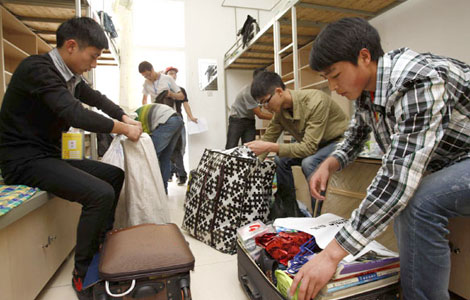
|

|

|

|

|

|
Today's Top News
Phone bookings for taxis in Beijing
Chinese consumers push US exports higher
Seoul delivers ultimatum to DPRK
Boston bombing suspects intended to attack NYC
No let up in home price rises
Bird-watchers undaunted by H7N9 virus
Onset of flood season adds to quake zone risks
Huawei 'not exiting US market'
US Weekly

|

|
